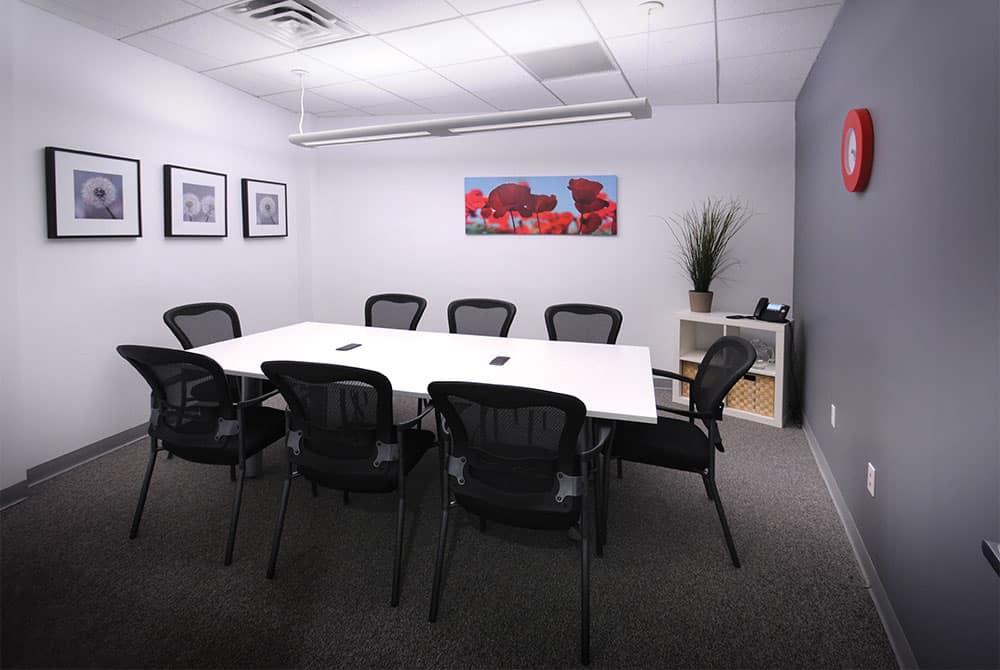Conference rooms are just as important as any co-counsel opportunity or client referral that come your way and these are often one of the perks in a shared office space. If conference room etiquette is not maintained on your end, you might find yourself losing out on opportunities because of the burned bridges.

When it comes to conference rooms, being a good suite-mate should be obvious – but as we have found over the years, that’s not always the case.
At Law Firm Suites, we have developed a set of “house rules” for conference room etiquette. Following these eight rules will keep you in the esteem of your colleagues.
1. Leave the conference room cleaner than the way you found it.
Plain and simple, clean up after yourself and your guests. If clean up time is limited or you do not have access to cleaning supplies, do your best to inform the receptionist or office manager. It is inappropriate to leave a mess for the next guy to clean, so do not do it in any scenario.
2. Making sure you schedule your meetings accordingly.
It never looks good to the client to have their meeting barged in on by the next reservation. Make sure you schedule enough time for your meeting because failing to do so can result in you being asked to leave the conference room altogether. There is also no guarantee that you will have another conference room to occupy which puts everyone in an uncomfortable situation.
3. Don’t just assume an empty conference room is free.
Most offices have a mechanism for reserving the conference room. Just because a conference room is empty does not mean you have carte blanche to use it without a reservation. Scheduling prevents sticky situations.
4. Do not use the conference room as your second office.

A conference room in a shared office space should never be used for individual work that can be accomplished at your desk. It is likely that in a shared office space, arrangements can be made to rent an actual office or work space on a temporary basis.
5. Make sure you have not double booked conference rooms.
Read your reservation calendar carefully and make sure that you do not inadvertently double book conference rooms. If you accidentally double book, cancel the extra reservation immediately.
6. Book your conference room early, cancel early too.

7. If someone is conflicting with your reservation, ask the receptionist or office manager to handle the situation.
Unless there are no other options, try not to handle a conflict yourself. This may lead to hard feelings between you and the other lawyer, which may jeopardize your working relationship. Have a receptionist or the office center manager be the “bad guy.”
8. Be accommodating.
If you have reserved a meeting for two in a conference room that seats 30, offer to move your meeting to a smaller space (or to your office if possible) if another lawyer needs the bigger space for a deposition or closing. The favor will come back to you the next time you need it.
Remember, a conference room rental can work for you and also change the game in your legal career. Your respect for etiquette will guide you to success and further.


